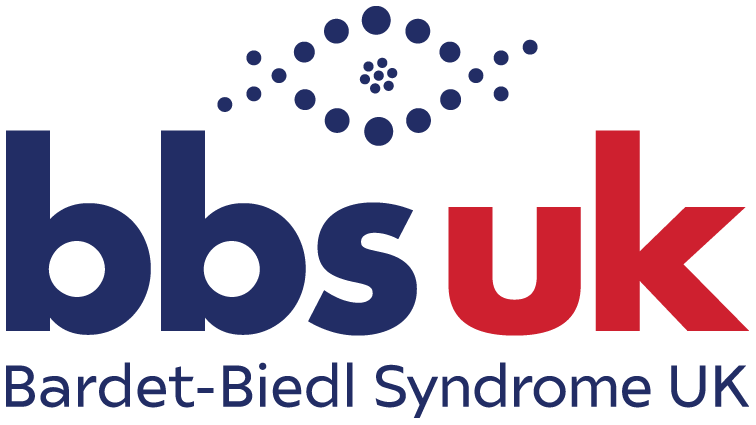What is Bardet-Biedl Syndrome?
Bardet-Biedl Syndrome is a rare, genetic disorder, which affects approximately 1 in 100,000 babies born.
BBS is a multi-system disorder that has a significant impact on the quality of life and may be life-limiting. Features include rod-cone dystrophy, a progressive eye disorder that leads to blindness, characterised by tunnel vision and night blindness; obesity; renal abnormalities; developmental delay; speech and language difficulties; extra fingers and/or toes and learning difficulties. The variability in presentation and severity of the syndrome together with the rarity of the condition can lead to delayed diagnosis and a lack of adequate local health care. There are around 560 affected individuals known to us in the UK.
There is at present no cure for Bardet-Biedl Syndrome and multi-disciplinary (MD) care is needed . Patients have access to NHS specialised MD clinics held in four centres in London and Birmingham. Bardet-Biedl Syndrome UK are third-sector partners in this service.

Diagnosis
Beales et al (1999 and 2001) suggest that the presence of four primary features or three primary features plus two secondary features is necessary for a clinical diagnosis of Bardet-Biedl Syndrome.
Not all of the features are always present in those diagnosed as having BBS and each one can vary in severity and appearance.
For more information see the BBS UK Medical Information Booklet
Primary Features
Rod-cone dystrophy
Polydactyly
Obesity
Learning disabilities
Hypogonadism in males
Renal anomalies
Secondary Features
Speech delay/disorder
Developmental delay
Brachydactyly
Polyuria/polydipsia
Ataxia
Poor co-ordination
Diabetes mellitus
Left ventricular hypertrophy
Hepatic fibrosis
